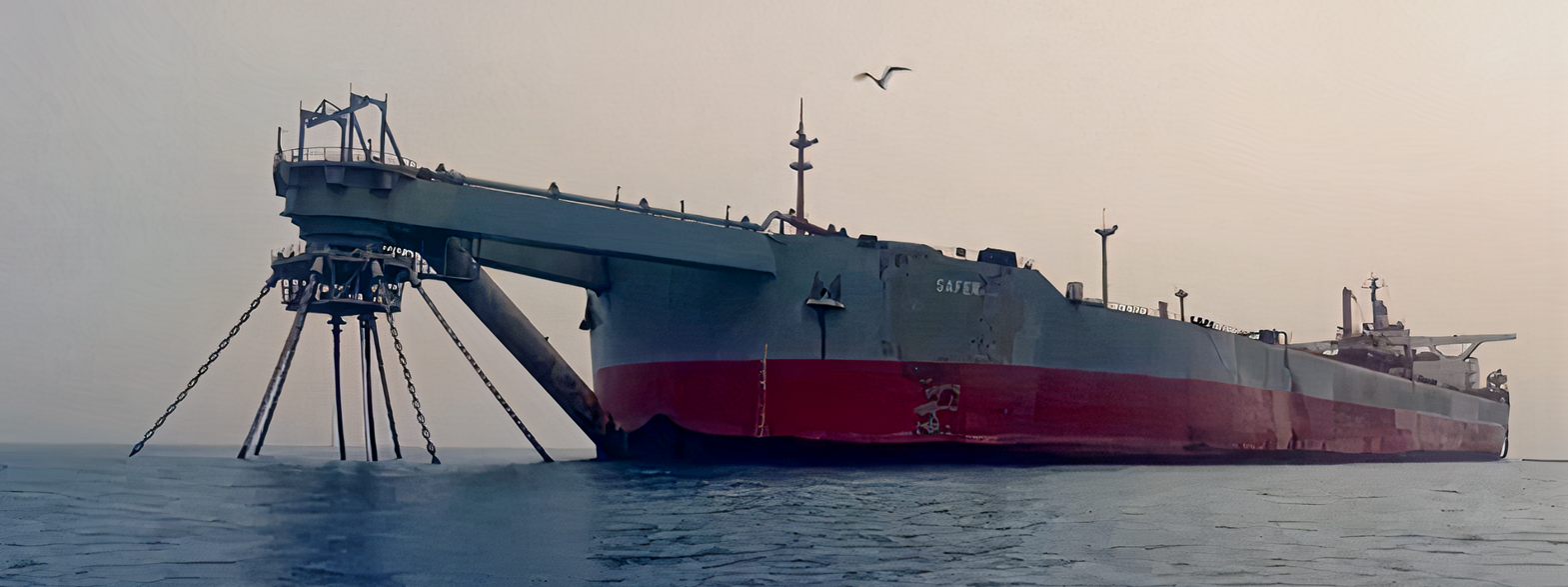
Act now to prevent a catastrophic
oil spill in the Red Sea
Moored off Yemen’s Red Sea coast, the FSO Safer is a supertanker in advanced state of decay that will soon break apart or explode if the world does not act. The United Nations is closer than ever to preventing the catastrophic spill. Donors, private companies and members of the public have so far contributed $99.6 million toward the two-phase UN plan to prevent the spill.
But as the UN geared up for the operation, prices for the type of vessel required to store the oil surged, chiefly due to factors related to the war in Ukraine. $129 million is now required to safely transfer the oil to a very large crude carrier (VLCC) in phase 1 of the operation. The vessel that will take on the oil is already in drydock for maintenance and necessary modifications and will be ready to sail in April. If the missing $29 million is raised quickly, UN will be able to begin the operation in the first half of this year.
Your donation today will bring us closer to preventing a catastrophe in the Red Sea and help galvanize further support from governments and private companies.
Progress Towards UN Crowdfunding Goal of $500,000
Funding raised as of 21 April.
The decaying supertanker is an environmental & humanitarian threat
The FSO Safer supertanker is holding four times the amount of oil spilled by the Exxon Valdez – enough to make it the 5th largest oil spill from a tanker in history.
If we do not act now, the result will be an environmental, humanitarian and economic catastrophe centered on the coast of a country already devasted by years of war.
A massive spill from the Safer would destroy pristine reefs, coastal mangroves and other sea life across the Red Sea, expose millions of people to highly polluted air, and cut off food, fuel and other life-saving supplies to Yemen, where 17 million people already need food aid.
Coastal communities would be hit hardest. Hundreds of thousands of jobs in the fishing industry would be lost almost overnight. It would take 25 years for fish stocks to recover. The cost of cleanup alone would be $20 billion.
Thank you donors for the generous support
The United Nations also thanks the private sector, including the International Association of Oil & Gas Producers and the HSA Group, and the generous individuals that continue to contribute to the UN crowdfunding campaign for the plan.
News
-
Tanker Sets Sail on United Nations Mission to Prevent Catastrophic Oil Spill in Red Sea
-
United Nations Takes Major Step Forward to Prevent Catastrophic Oil Spill in Red Sea as UN Development Programme Signs Agreement to Purchase Oil Tanker
-
Yemen: Marking ‘significant milestone’, UN says stricken tanker salvage operation can begin
-
UN launches crowdfunding campaign to head off decaying oil tanker threat
-
Yemen: $33 million pledged to address decaying oil tanker threat
-
UN unveils plan to prevent stricken oil tanker disaster off Yemen coast
-
Yemen: Health, environment and economy remain under threat from stricken oil tanker
-
Questions and answers about the UN mission to the SAFER oil tanker in Yemen
Twitter feed
Tweets by UNinYE

